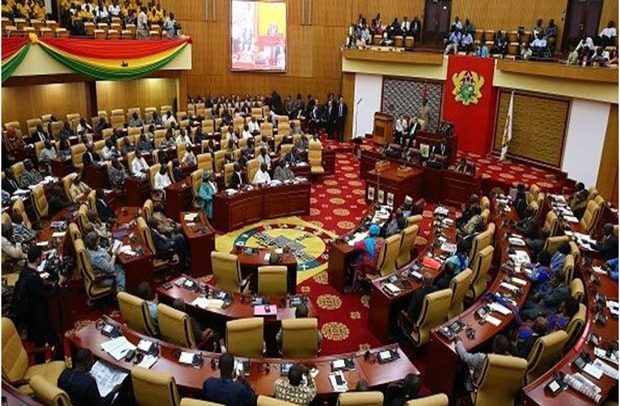K1 – Koo, Ghana has done it again!
K2 – Done what again? Allowed Uruguay to snatch the World Cup from our hands (or rather, our feet) once again?
– Oh, go’way! You think football is the only important activity on God’s earth?-
– Well, tell me of another activity that can keep man engrossed for hours and even days.
– What about trying to catch the eye of a beautiful damsel?
– But that would only apply to half of the world’s population!
– Are you sure? These days, men may compete with women for a beautiful woman’s affections! (Without being aware they are rivals!)
– Oh, shut up!
– Shut up? You wait! Our Parliament may have something to say about that eventuality soon!
– Actually, I am glad you mentioned the legislature. Because something happened there on the 10th of November 2022 that may have constitutional implications of a lasting nature!
– Lasting? … Will you stop using words that can have a double meaning?
– Listen, did you hear about the “censure motion” that was moved in the House by the Minority leader?
– Didn’t it turn out to be a rather half-cocked affair?
– Double meanings again?
– Well, a censure motion is supposed to end in either a Government falling or staying up, no?
– All right!!
– Yeah. The Speaker referred the issue to a committee!
– Yes! It’s like asking your mother-in-law to join your mother in discussing a complaint you have made against your wife!
– Would each of them be accompanied by her sisters?
– Not only their sisters but their friends, too!
– Hey – do you know that in the British House of Commons (“The Mother of all Parliaments”) there are two types of “censure motion”?
– Two types?
– Yes. Shut up and listen: QUOTE:
(Erskine May 18.44)
“From time to time, the Opposition [puts down] a motion… expressing lack of confidence in the Government, or otherwise criticising its general conduct. By established convention, the Government always accedes to the demand from the Leader of the Opposition to allot a day for the discussion of a motion tabled by the official Opposition which, in the Government’s view, would have the effect of testing the confidence of the House….
“This convention is founded on the recognised position of the Opposition as a potential government, which guarantees the legitimacy of such an interruption of the normal course of business….
”Motions critical of the conduct of Ministers, either individually or collectively, have not been treated as falling within this convention….”
– Ah! So there was room to manoeuvre by our Speaker?
– You could say that. The House of Commons can be a funny place. For instance, a Minister whose conduct is “censured” by the House through a motion of no confidence, may have his salary reduced!
– Hahahahaha! That’s what! call a proper punishment!
– Can you imagine what loss of face a minister would suffer if his salary were to be reduced to “200 Cedis per month”?
– It couldn’t buy three tubers of yam!
– Yes, in Accra! But, according to the Minister of Agriculture, it could buy about ten tubers of yam at the place where the yam was harvested! Not really a relevant answer, I’d say.
– So what’s the point of referring me to Erskine May?
– This – that the technical details of a censure motion may not be as important as the principles or motivation behind it. A censure motion is to tell the whole country, as well as the government and the head of government, that Parliament has “lost confidence” in the minister or ministers mentioned in the motion. Therefore, the head of government might replace them with others, in whom the House might repose greater confidence. If the head of government listens to the House, the legislation that his Government might bring to the House would receive a warmer welcome. But if he does not listen to the House, then Parliament might refuse to pass bills brought by particular ministers.
So it is a way for the House to engage in a sort of symbolic dialogue with the head of government.
– Is it like a yellow card in football?
– You’ve got it right.
– But if that’s the case, then referring the censure motion to a committee, whose report will be brought before the whole House, debated and either approved or rejected, can serve the same purpose?
– Yes, but a committee would probably carry out its discussions in private, which would then reduce the dramatic effect the original censure motion would have produced. In a debate by the whole House, the minister (s) would be sitting there, whilst their critics lobbed “Baba Yara-type shots, or even Edward Acquah Sputnik bazookas, at them. Similar shots might be fired in the committee, of course, but that would give the Minister (s) an idea of where they should dive to, when the debate occurs in the whole House. The effect of the shots at goal would thus be completely different from the usual penalty shot, which, fired in ‘cold blood’, can move with thunderous speed to that side of the goalie that is not ready!
– But wouldn’t you say that the committee’s proceedings might also provide the ministers’ opponents with counter-ballasts with which to shoot them down? If I know how you are going to answer a question, I can change the question, or not ask it at all?
– Yeah – Erskine May turn out to be an ‘Erskine March’, on the day the committee’s report is debated by the full House!
By CAMERON DUODU


